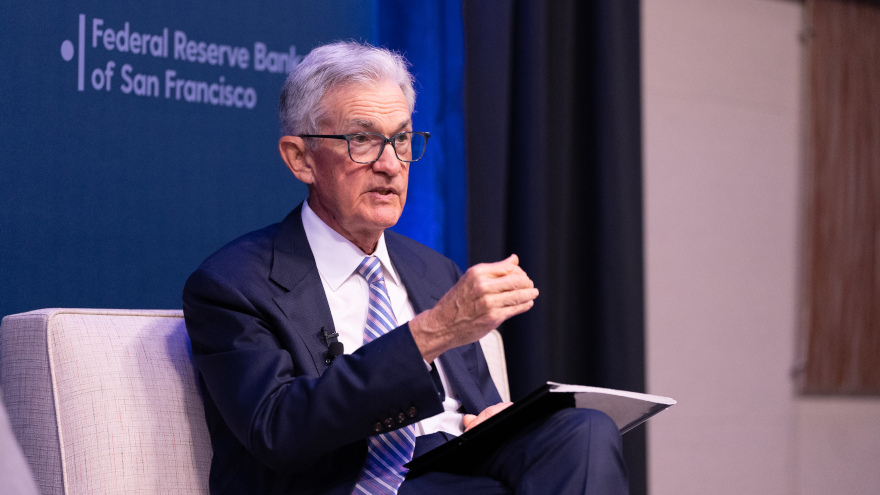Fed chair explains steps to maintain public’s trust

In this image taken on March 29, Federal Reserve chair Jerome Powell is participating in a moderated discussion with Kai Ryssdal at the Macroeconomics and Monetary Policy Conference hosted by Federal Reserve Bank of San Francisco. Image courtesy of the Fed.
By subscribing, you agree to receive communications from Auto Remarketing and our partners in accordance with our Privacy Policy. We may share your information with select partners and sponsors who may contact you about their products and services. You may unsubscribe at any time.
Federal Reserve chair Jerome Powell again reiterated how policymakers arrive at their decisions involving interest rates when he appeared at the Stanford Business, Government and Society Forum at Stanford University last week.
But Powell also delved into other topics such as transparency and accountability, highlighting steps the Fed takes to maintain public confidence and trust.
“Transparency and accountability are fundamental for any government agency in a democracy but are especially important for one granted policy independence,” Powell told the gathering at prestigious California university. “The Fed has a special obligation to explain ourselves clearly — to describe what we are doing and why we are doing it.
“We are always striving to improve on this communication, and it is a job that is never complete. But we have come a long way,” he continued.
Powell pointed out that before 1994, the Federal Open Market Committee (FOMC) did not announce monetary policy decisions. Today, Powell said the Fed not only reveals those decisions, but he also explains the thinking behind them in a post-meeting statement and press conference.
The Fed chair elaborated further about the ways policymakers look to be transparent.
Subscribe to Auto Remarketing to stay informed and stay ahead.
By subscribing, you agree to receive communications from Auto Remarketing and our partners in accordance with our Privacy Policy. We may share your information with select partners and sponsors who may contact you about their products and services. You may unsubscribe at any time.
“We publish detailed minutes of our deliberations and a quarterly summary of the economic and policy projections of each FOMC participant. We publish a monetary policy report twice a year, and the chair appears before Congress to present that report and answer any and all questions that are on the minds of our oversight committee members,” Powell said at the Stanford event.
“In 2020, we completed a yearlong public review of our monetary policy framework, and late this year, we will begin another such review. My colleagues and I explain our views on the economic outlook and monetary policy in speeches like this one, and in visits to communities across the country, as part of extensive outreach in which we seek input from individuals and groups throughout society. Transparency is an affirmative and proactive commitment to the public,” he went on to say.
Near the end of Powell prepared remarks, the Fed chair mentioned that policymakers must avoid something that might have resonated with the student population.
“To maintain the public’s trust, we also need to avoid ‘mission creep,’” Powell said. “Our nation faces many challenges, some of which directly or indirectly involve the economy. Fed policymakers are often pressed to take a position on issues that are arguably relevant to the economy but are not within our mandate, such as particular tax and spending policies, immigration policy, and trade policy.
“Climate change is another current example. Policies to address climate change are the business of elected officials and those agencies that they have charged with this responsibility. The Fed has received no such charge,” he continued. “We do, however, have a narrow role that relates to our responsibilities as a bank supervisor. The public will expect that the institutions we regulate and supervise will understand and be able to manage the material risks that they face, which, over time, are likely to include climate-related financial risks. We will remain alert to the risk that there will be pressure to expand that role over time. We are not, nor do we seek to be, climate policymakers.
“In short, doing our job well requires that we respect the limits of our mandate.”


